A memorial in honor of the soldiers who died during the Patriotic War of the people of Abkhazia was opened in the village of Atara on the eve of the 27th anniversary of the victory in the Georgian-Abkhazian war.
A monument to the natives of the village of Atara, who died during the Patriotic War of the People of Abkhazia, was opened in the village on the eve of the celebration of the 27th anniversary of the victory in the Georgian-Abkhazian war of 1992-1993. The memorial was built on donations from patrons and organizations, including the World Abaza Congress.
The Chairman of the Supreme Council of the WAC Mussa Ekzekov noted that the post-war generation of Abkhazia has the task of "doing everything possible so that the courage and valor of compatriots, including those who came from countries outside the former Soviet Union to defend their historical homeland, remain in the memory of present and future generations."
"The monument in the village of Atara, like other monuments to those who fell for freedom of Apsny, is a symbol of heroism and selfless service to the Motherland. I believe that control over the condition and protection of memorial sites associated with the events of the Patriotic War of the people of Abkhazia in 1992-1993 is one of the most important tasks. It is very indicative that by joint efforts of residents and natives of the village of Atara, and caring citizens, it was possible to restore the monument," Ekzekov said.
The memorial was built based on a monument that already existed on this site. The result was actually a new memorial complex.
"I would like to thank everyone who actively participated in the restoration of the monument. Peaceful sky and prosperity to the people of Apsny," concluded the Chairman of the WAC Supreme Council.
The head of the local branch of the WAC in the village of Atara Alkhas Kvitsinia took an active part in the construction of the monument, as well as in attracting funds for this project. He said that people from the village of Atara contributed a significant amount to the construction of the monument. Kvitsinia stressed that the monument was "built by the whole village".
"For three months, literally day and night, construction work was going on. Every day, together with the craftsmen, local residents, mainly young people, were here. Everyone helped as much as they could. Thank you very much to all those who are not indifferent, to everyone who contributed to the construction of the monument to the people of Abkhazia who died in the Patriotic War," he thanked.
The leaders of the country, headed by President Aslan Bzhania, came to the opening of the monument, the mothers of the dead soldiers, members of the public, villagers and, of course, veterans of the Patriotic War of the people of Abkhazia came.
Here is just one of their stories. Once upon a time, two siblings - Riad and Farid Aryutaa - moved to Abkhazia from Syria literally four months before the start of the armed conflict. Both dreamed of living in the homeland of their ancestors. The war caught the young men in Abkhazia. The youngest Riad at that time was 28 years old, the eldest Farid - 41 years old. Both, without hesitation, went to defend their homeland. It turned out that Farid died on March 16, 1993 in the village of Atara. Riad went through the entire war and was awarded the Order of Leon (the order was established on December 4, 1992 to reward for special bravery, dedication, courage shown in the defense of the Republic of Abkhazia - ed.). After the war, he returned to Syria, but the call of the Motherland turned out to be stronger: already in 2012, he came back to Abkhazia, where he still lives, raising two sons and a daughter.
Riad Aryutaa came to the opening of the monument together with his colleagues.
"This is a very significant day for us. Thank you all very much," said the veteran.
Monuments to the people of Abkhazia who died during the Patriotic War exist in many localities of the Republic. Every year, on important days for Abkhazia, residents and guests of the country come to these memorials to lay flowers and wreaths, thus honoring the memory of their heroic compatriots.
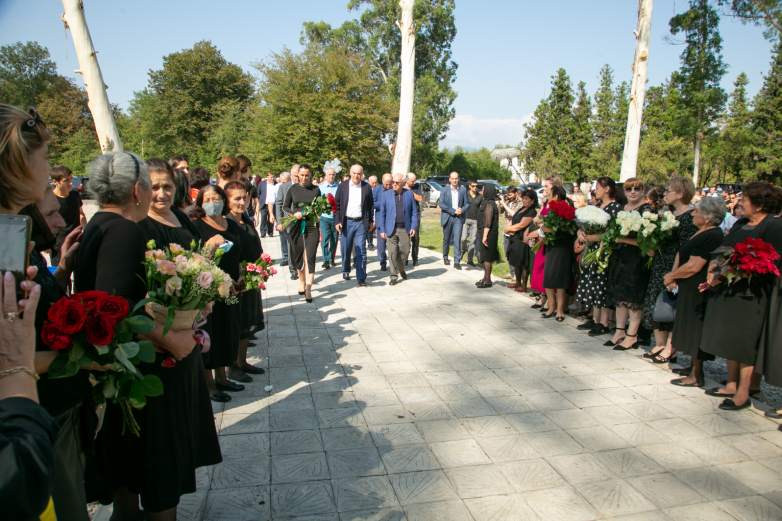
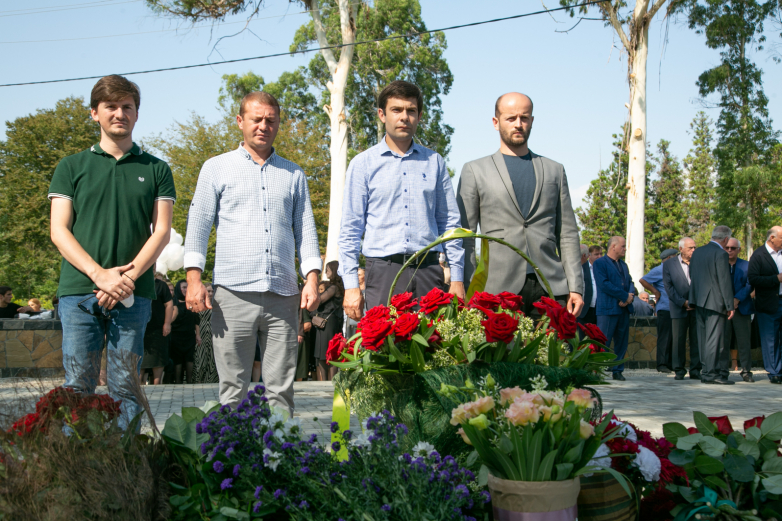
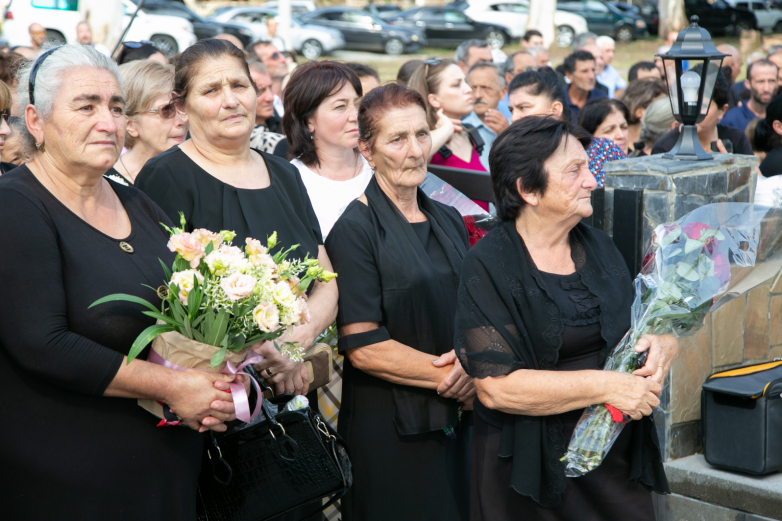
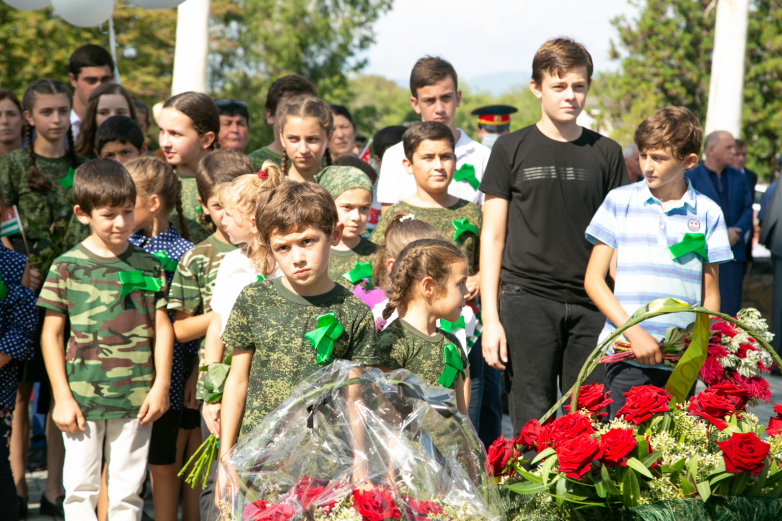
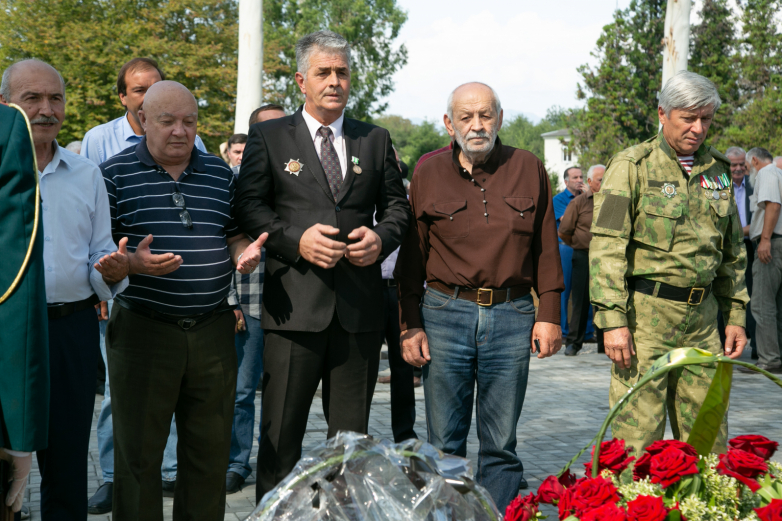
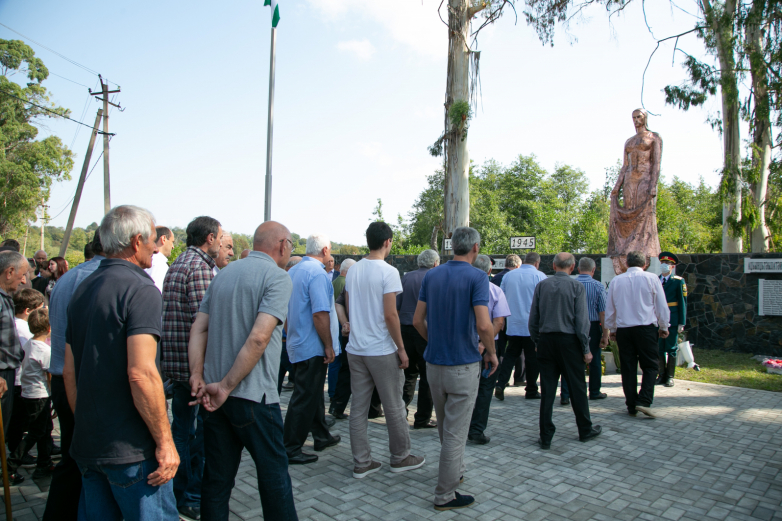
to login or register.